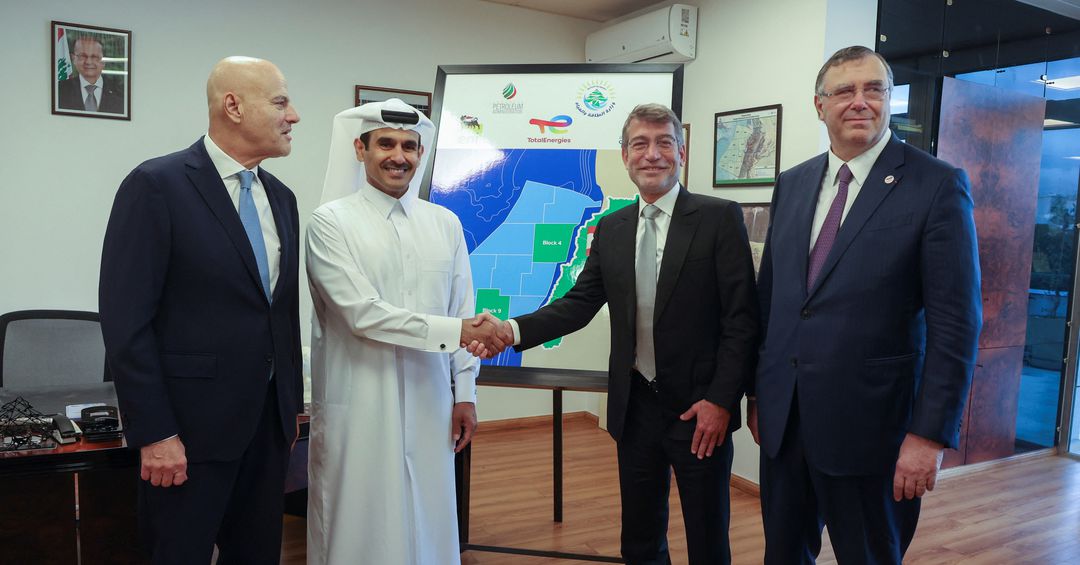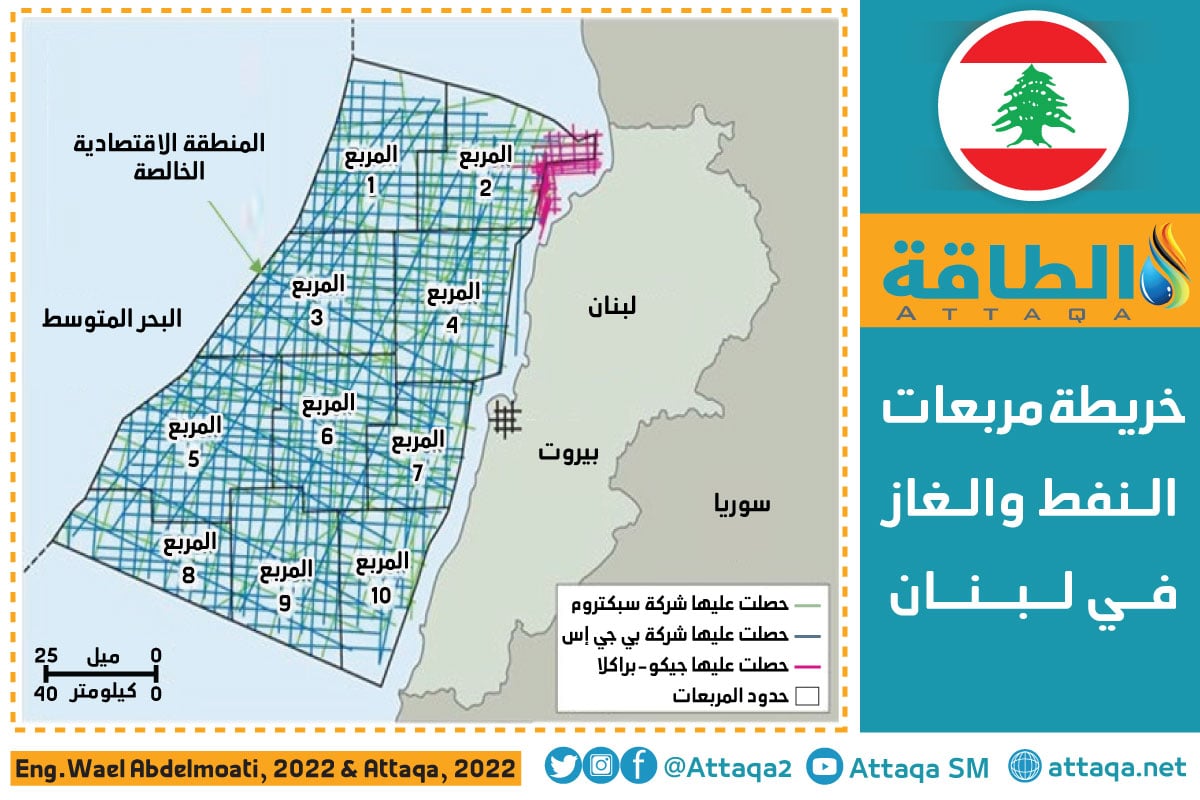Oil and gas exploration operations in Lebanon are awaiting the results of drilling an exploratory well in the North Sea, which is being carried out by Transocean.
Exploration operations are expected to start off the coast of Lebanon next September, in a step that may pave the way for placing Beirut on the map of hydrocarbon-producing countries, according to data seen by the specialized energy platform.
In this context, Lebanese Energy Minister Walid Fayyad said that there is great optimism to start exploration operations off the Lebanese coast, after the CEOs of Total Energy and Eni expressed their optimism in concession No. 9.
Fayyad added, in press statements on the sidelines of his participation in the World Utilities Conference in Abu Dhabi, that oil and gas exploration work is scheduled to begin in Lebanon in September.
And he stressed that before the end of this year, Lebanon will have to know whether there are oil and gas reserves off the coast that can be developed, according to Reuters.
drilling rig
In early May, the French company Total Energy, in agreement with its partners Eni in Italy and Qatar Energy, announced the signing of a contract with Transocean, the second largest offshore drilling contractor in the world, to rent a rig that will drill an exploration well in Block 9 off the coast of Lebanon, as soon as possible. Possible in 2023.
Total indicated that it would lease the Transocean Barents, a semi-submersible drilling rig currently continuing operations in the British North Sea.
The Transocean delegation recently held talks with Lebanese officials to compile a file on all the administrative, legal and financial procedures required to start the drilling of the well in Block 9.
The rig is still in the North Sea, and the date of its arrival in Lebanese waters is linked first to the outcome of the well that it is drilling there. If it records a commercial discovery, the arrival of the rig may be delayed until October, and if no discovery is recorded, the rig may arrive in September.
It is noteworthy that the sailing period from the North Sea to Lebanese waters is estimated at 4 weeks, according to the data seen by the specialized energy platform.
Total Energy had recently completed a set of tenders related to support ships, the purchase of marine diesel for the rig, the helicopters that will transport the crews, and the management of the logistics base in the port of Beirut.
Total rented 8,000 square meters in the port of Beirut at a cost of $60 per meter annually, at a total cost of $480,000.
Exploration of oil and gas in Lebanon
In October, the major French oil and gas company reached an agreement with the Lebanese government over the fate of the gas field, as the historic maritime border agreement with Israel entered into force.
Offshore areas in the eastern Mediterranean and the Levant have recorded significant gas discoveries in the past decade, and interest in them has increased since the Russian invasion of Ukraine disrupted the flows.
The first licensing round in Lebanon in 2017 saw a consortium of Total Energy, Eni and Russia’s Novatek win bids for exploration in Blocks 4 and 9.
Novatek withdrew in September 2022, leaving its 20% stake in the hands of the Lebanese government, in the aftermath of the Russian-Ukrainian war.
Lebanon and Israel agreed in October in a historic agreement brokered by the United States to demarcate their long-disputed maritime borders.
Block 9 is located next to the newly demarcated border with Israel, according to the agreement. If discoveries are made in a field extending south of that border, they will also be exploited by the consortium on behalf of Lebanon, while Total and Israel have agreed a separate deal for any revenue generated from there.

Qatar Energy Partnership
The CEO of Total, Patrick Pouyanne, confirmed in previous statements that his company is keen to start work on the Lebanese offshore Block 9 “as soon as possible,” expecting to start drilling wells in the third quarter of this year (2023).
Qatar Energy has become a major partner in oil and gas exploration operations in Lebanon, in Blocks 4 and 9.
Qatar acquired a 30% stake in the alliance, with France’s Total Energy and Italy’s Eni retaining 35% each.
Eni’s CEO, Claudio Descalzi, had indicated that oil and gas exploration in Lebanon could provide a “great opportunity” for Beirut, at a time when the world was facing a huge shortage of gas, expressing optimism about a discovery in Block 9.
Lebanon hopes that the discoveries will help it find solutions to the country’s economic crisis, which has pushed the local currency down by more than 97% of its value, and led to the erosion of foreign reserves.
Lebanon owns 10 offshore areas, ranging in area from 1,201 to 2,374 square kilometers per square, and the search operations were assigned in two sectors (which are sectors 4 and 9), to a consortium of 3 companies, the French Total Energy, the Italian Eni, and the Russian Novatec.
In April 2020, Lebanon announced that initial drilling in Concession 4 had shown traces of gas, but it did not have commercial reserves, and exploration had not begun in Concession 9, part of which lies within Israel’s borders.
The design below, prepared by Specialized Energy Platform, shows the map of Lebanon’s oil and gas blocks:

related topics..
Also read..

Leave a Reply